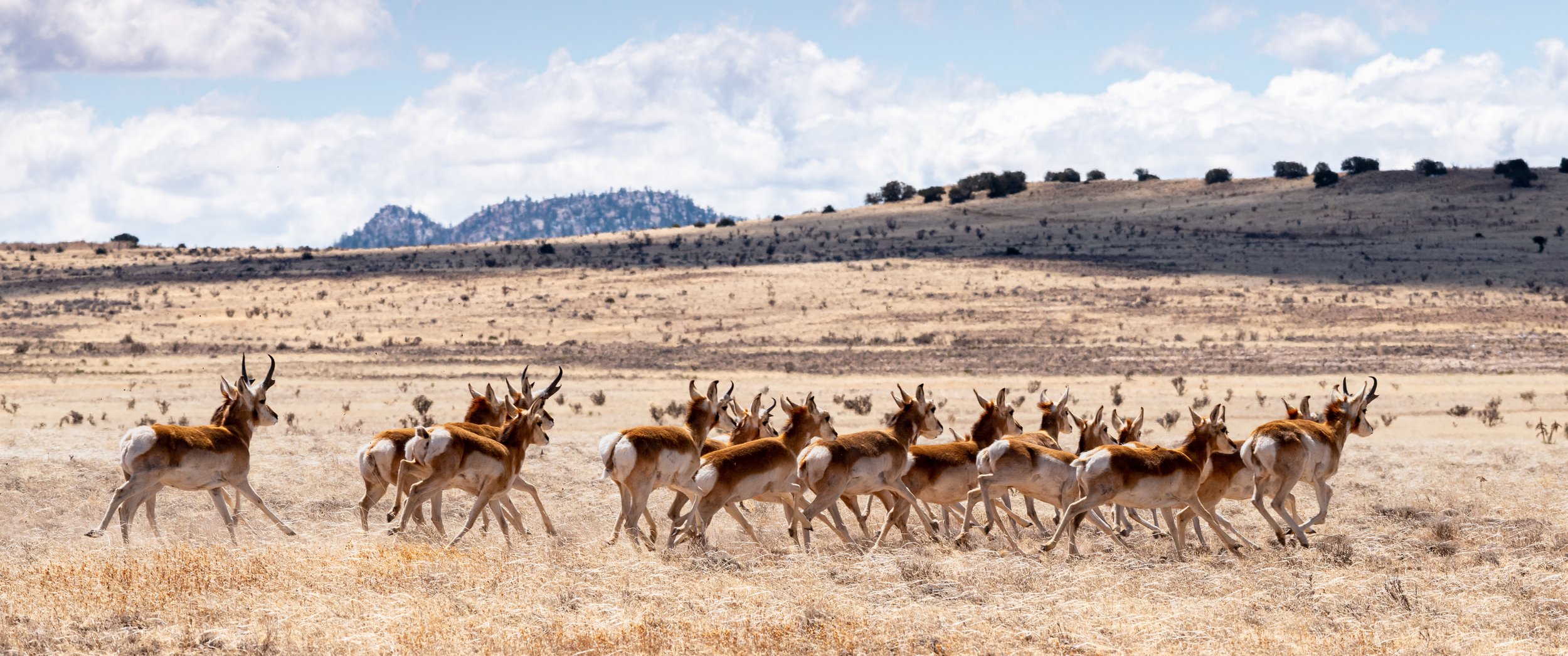Congress Announces the Bipartisan Wildlife Movement Through Partnerships Act
Photo by: Senator Padilla’s Office
June 24, 2024
In an exciting development for wildlife, Senator Alex Padilla (California) and Representatives Zinke (Montana) and Beyer (Virginia) teamed up to announce the Wildlife Movement Through Partnerships Act today, which will significantly improve habitat connectivity for a diversity of terrestrial species nationwide. Habitat connectivity plays a crucial role in the survival and well-being of wildlife populations. It allows animals to move freely, access resources, find mates, and establish new territories.
Wildlife advocates nationwide are celebrating this announcement. In addition to bolstering existing government programs geared towards improving habitat and migration corridors for big game species, the legislation additionally expands upon those programs. It provides new and sorely needed federal funding and technical assistance to those working on the ground to study and conserve habitat connectivity for all species whose movement patterns are currently stifled by infrastructure and other obstacles.
“We are incredibly excited to see this bipartisan commitment today,” said Erin Sito, U.S. Public Policy Director for Wildlands Network. “This legislation is the result of months of collaboration, constructive negotiations, and incredibly passionate lawmakers, Congressional staffers, conservation organizations, and other key community members that care about making space for wildlife to move throughout our landscapes.”
A herd of pronghorn antelope running across grassland in New Mexico. Photo by: Jim Ekstrand
The Wildlife Movement Through Partnerships Act would:
Establish the “Wildlife Movement and Migration Corridor Program” at the Department of the Interior and administered by the National Fish and Wildlife Foundation to conserve, restore, or enhance habitat, migration routes, and connectivity, with a 50% set-aside for big game movement areas.
Establish a State and Tribal Migration Research Program at the Department of the Interior to provide funds directly to state fish and wildlife agencies and Tribes for research that improves understanding of terrestrial connectivity, wildlife movement routes, and migration routes.
Allow for funds from the U.S. Fish and Wildlife’s existing Partners for Fish and Wildlife Program to be used to support terrestrial connectivity, wildlife movement, and migration route conservation and to provide technical assistance to other federal agencies for such purposes.
Support the U.S. Geological Survey’s Corridor Mapping Team to provide technical assistance to States and Tribes to map priority migration routes, with a 50% set-aside for big game movement areas.
Direct the Departments of the Interior, Agriculture, and Transportation to coordinate actions and funding across federal agencies for programs established by the bill, and to improve coordination with States, Tribes, and non-governmental partners.
Guarantee that the legislation will only be applied in a voluntary manner and protect valid existing and private rights, military readiness, private property, public access, and the authority or jurisdiction of states and Tribes.
This huge step forward for wildlife started late last year when the United States Senate Subcommittee on Fisheries, Water, and Wildlife held a hearing to discuss the successes, challenges, and opportunities experienced in the West to address habitat fragmentation by improving habitat connectivity conservation policies. Since then, the Chair of the committee, Senator Padilla has championed this introduction in the Senate and has been working with Republican and Democrat colleagues the House to secure bipartisan introduction.
Representative Zinke is no stranger to wildlife migrations and the need to ensure safe movement corridors. In 2018, during his appointment as Secretary of the Interior, he signed Secretarial Order 3362 to improve “Habitat Quality in Western Big-Game Winter Range and Migration.” The Wildlife Movement Through Partnerships Act provides several resources that will support the programs created by that secretarial order, which includes GPS collar data collection and incentives for local voluntary conservation efforts.
Representative Beyer is also a long-time supporter of wildlife corridor initiatives. Since 2016, Rep. Beyer has been the House champion for the Wildlife Corridor Conservation Act; a bill that has catalyzed important conversations at the federal level around the need to preserve habitat connectivity for all species. It has also inspired several administrative policies that the Wildlife Movement Through Partnerships Act would provide support for.
Wildlands Network commends Representatives Beyer and Zinke for their consistent commitment to conserving wildlife's ability to roam, and we thank Senator Padilla for his leadership on this essential piece of legislation that will strengthen the vitality of our nation’s iconic and ecologically important wildlife for generations to come.
Note: The Wildlife Movement Through Partnerships Act was announced today and will officially be introduced when the Congressmen are back in session.



